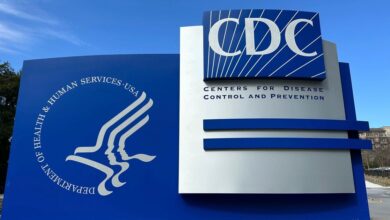Autism evaluations cancelled by parents amid HHS registry fears

In a recent turn of events, Michael VanPelt found himself on a rollercoaster of emotions as he navigated the process of getting his 3-year-old son evaluated for autism. After facing challenges in finding a doctor who accepted his health insurance, VanPelt finally received a diagnosis for his son from an independent neurologist provided by the New Jersey public school system. While initially thrilled that his son would now receive the individualized attention he needed, VanPelt’s joy quickly turned to fear following recent announcements from federal health leaders about initiatives aimed at uncovering the origins of autism.
The fear and uncertainty sparked by these announcements have spread throughout the autism community, leading to a wave of cancellations and requests to erase diagnoses. Clinicians, including pediatric psychologist Amy Esler from the University of Minnesota, have reported a significant number of cancellations and withdrawals from waitlists for evaluations. The University of North Carolina TEACCH Autism Program, a renowned center for autism care and research, has also seen families removing themselves from the waitlist, according to Hannah Morton, a psychiatry professor at UNC.
The root of this panic and distrust can be traced back to remarks made by health secretary Robert F. Kennedy, Jr. and National Institutes of Health Director Jay Bhattacharya. These statements have instilled fear in the autism community, prompting individuals and families to question the implications of a formal diagnosis. As a result, many are opting to delay or avoid seeking medical help for autism-related concerns.
The ripple effects of this situation are being felt across the country, with organizations like Vanderbilt University Medical Center declining to comment on the issue. The reluctance to pursue formal diagnoses and treatment is concerning, as early intervention is critical in supporting individuals with autism and their families.
In response to this climate of fear and uncertainty, it is essential for healthcare providers and researchers to prioritize communication and education within the autism community. Building trust and providing accurate information about the benefits of early intervention and treatment can help alleviate fears and empower individuals and families to seek the support they need.
As Michael VanPelt navigates this challenging landscape, he remains hopeful that his son will receive the care and support necessary to thrive. By staying informed and seeking guidance from trusted professionals, families like the VanPelts can navigate the complexities of autism diagnosis and treatment with confidence and clarity.




